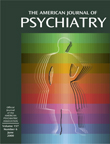Clozapine in the Treatment of Refractory Psychotic Mania
Abstract
OBJECTIVE: The efficacy of clozapine was examined in a group of patients with treatment-refractory bipolar disorder, manic type with psychotic features.METHOD: Twenty-two subjects with treatment-refractory bipolar disorder with active manic and psychotic symptoms participated in a 12-week open-label trial of clozapine. After a 2–10-day drug washout period, patients began treatment with clozapine at 25 mg/day; the dose was increased 25 mg/day (as tolerated) to a maximum level of 550 mg/day. Patients were evaluated longitudinally over the course of the study with the Brief Psychiatric Rating Scale (BPRS), the Young Mania Rating Scale, and the Clinical Global Impressions (CGI) scale.RESULTS: Fourteen of the 22 subjects in the study continued taking clozapine for at least 10 of the 12 weeks. Among the entire group, mean improvements of 56.7%, 56.6%, and 39.1% were seen on the BPRS, Young Mania Rating Scale, and CGI, respectively. Seventeen of the 22 subjects (77.3%) experienced at least a 20% improvement in scores on all three scales.CONCLUSIONS: The findings from this open-label study, which are consistent with previous retrospective studies, case reports, and one other open-label prospective study, suggest that clozapine is an effective agent for patients with treatment-refractory psychotic mania.



